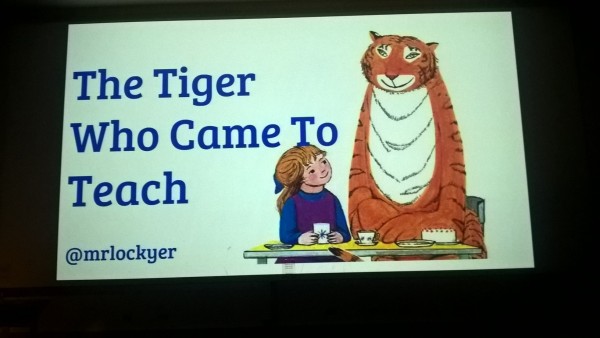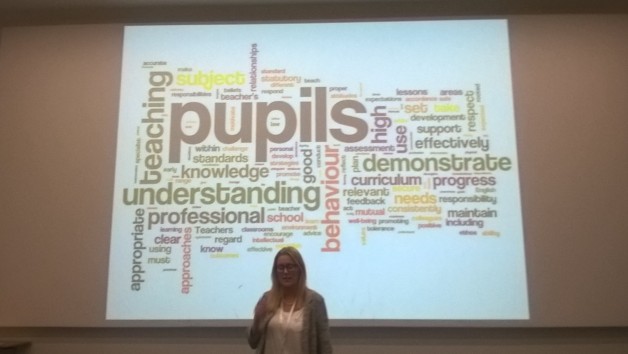Teaching and Learning Takeover took place at Southampton University on the 15 October 2016. It reminded of how important in schools it is to retain the focus on our core purpose, to let teaching and learning takeover all the other busyness and business of school life.
John Tomsett (@johntomsett) started the day asking us to consider how we get better? It’s not about always picking up something new and shiny every week and try to add it to our practice (and teachers can be very magpie like). It’s more about many small steps that take us on a successful journey. Steps we often already know. So development should focus on consolidating and embedding current positives. At our school this is certainly the point we have reached: embedding the good practice and tweaking it carefully and manageably.
I was fascinated by Kev Bartle’s (@kevbartle) session about Leadership. He shared some fascinating clips: ‘Amazing Starlings murmuration’ and ‘Boids’ (sorry didn’t note the full link). Kev talked about school’s being complex organisations and that development of structures was an organic, ecological and chaotic process. However many schools try to impose a linear structure, despite the fallacy of guaranteed cause and effect. He spoke more about Chaos Theory and asked us to consider what the challenges / opportunities this might present for schools:
- Sustainable capacity-building?
- Ethical collaboration?
- Purposeful professional learning?
At the edge of the chaos if schools can give staff agency, so they and the school can evolve positively. For myself as a headteacher it is finding the most appropriate balance in the tension of a process between:
- the complexity of schools as organisations which means that order is emergent. Structures evolve.
- and the requirement from the outset for certainty and structure that external accountability requires
Next John Tomsett discussed “cross phase assessment and unfettered learning” across primary and secondary. That it’s important to build from the Early Years up. Transition cross phase needs to be not just in assessment and curriculum, but also crucially in terms of pedagogy. Teachers should have high expectations of all learners and embrace the challenge of bringing all of the learners with them. We need to keep reminding ourselves not to use the language of ability, but at John’s school they to low, mode or high starters. Assessment should be fully focused on moving learning on and not be a hoop jumping exercise. Leaders need to have courage to focus on the key purpose of assessment, and not let it become a barrier to learning.
After lunch Jim Smith (@jim1982) explained passionately about the value of encouraging disruptive learning / innovation. Average is bad, and we need to always be thinking / questioning how we could do things differently and better. We need to focus on these as principles and not become wedded to specific strategies. Jim then asked us in groups to trial a range of practical activities we could use in the classroom.
The entertaining, enthusiastic and inspiring Stephen Lockyer (@mrlockyer) was next and chose to share the story of “The Tiger who came to Teach”. Filled with positive priorities for pedagogy such as:
- Man the checkpoints: develop their abilities to self-regulate
- Aim high (like really high): convince them they are working above their level
- Keep up, not catch up: fill any gaps as quickly as you can
- Provide a ladder: scaffold levels of development
- Join the dots backward: build review points short, medium and long term
- Launch your kitemarks: seek out pupils standards and feature them regularly
- Share the Blue Peter magic: supply living examples
- Have stupidly high hopes: reset your bottom group as “not there yet”
- Beat the drum: publicise high achievement as much as possible

Lindsay Skinner (@lindsayjskinner) rounded off an inspiring day of professional learning by talking about the power of a teacher’s voice. Being clear, fluent and emotionally engaged. Often we focus so much on the content of what we want to say in lessons, we don’t always fully consider the small details and tone of what we say and the impact it has on the understanding of the learners. Lindsay clearly explained the importance of slowing down our speaking pace at challenging times and for key messages, and the power of anecdotes in proving to pupils we are human.

So a wonderful and enjoyable day for us all as human beings, and powerful and inspiring as professional learners.








Comments on: "#TLT16" (1)
[…] TLT 16 […]
LikeLike